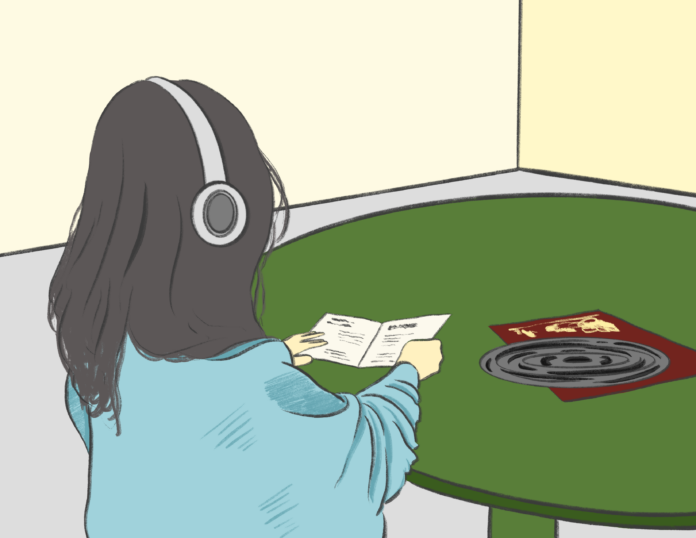The two types of music lovers
By MOLLY THOMPSON – mmtthompson@ucdavis.edu
I’ve kept it no secret that I’m an embarrassingly dedicated Taylor Swift fan. There are a few reasons for that, with the first being a combination of her propensity to enshrine captivating storylines in her tracks and the second being my long-held love of stories. Nostalgia and sentimentality are doubtlessly to blame as well.
But I think one of the biggest distinctions between people that gravitate toward Taylor Swift and those that stray away can be found in how we each individually process music as we listen to it.
Of course, there are more than two types of people (I’m not trying to divide the world into Swifties and haters), but for the sake of this conversation, there exists a binary of people who listen to music primarily for lyrics, words and semantics, and people who listen primarily for melodies, instrumentals and sounds.
When I listen to a song, I hear poetry. My favorite songs are comprised of beautiful words that fit together in serendipitous patterns and combine to tell a story or convey an emotion so visceral I can feel it in my core. I listen to music for the lyrics — the melody is secondary.
Granted, the actual sound of the song isn’t moot; I still want to listen to music over, for example, audio recordings of poetry. But the instrumentality of a song just has to be good enough — the lyrics are make-or-break.
This topic is fascinating to me, so I’ve discussed it with a number of people. As someone who appreciates lyrics exponentially more than I appreciate the actual music, I memorize songs without meaning to and internalize the words intrinsically. But I’ve talked to a lot of people who almost don’t hear the words of a song at all — they hear the melodies, sounds and instruments as the heroes, with the lyrics as just another element of a cohesive track. As for myself, I could tell you the bridge of a song word-for-word, but don’t even try to ask me about the baseline.
Naturally, these preferences influence how we choose what music to listen to. I like Taylor Swift because I enjoy how she works with language, and her songs are catchy enough to satisfy me. But a common criticism of her work is her lack of creativity and variety with her instrumental tracks, so someone who hears sounds over words isn’t going to enjoy it as much as I do. Similarly, I wouldn’t be interested in songs with more artistically crafted instrumentals if the lyrics aren’t the focus.
This phenomenon gets really interesting when we look at it in regards to the patterns of popular music in our current zeitgeist. A lot of pop music right now sounds similar sonically; what people latch onto are the lyrics. Of course, to be a really big hit, a song still has to have a really catchy melody. However, once it crosses that threshold, the words seem to be the characteristic that’s most heralded about it.
Think about Sabrina Carpenter’s recent smash-hit album “Short n’ Sweet.” Yes, the crowd-favorite tracks are punchy and upbeat, but the most celebrated elements are clever lyrics and lines that resonate with the audience.
My theory for why that tends to be the case is that, to the untrained ear (like mine), it’s significantly easier to comprehend and appreciate stellar craftsmanship when it comes to words than with music. I can tell whether or not I like the sound of a song, but I don’t have the skillset to judge or understand its quality on a deeper level. However, I’m well-versed enough in the realm of words to see, feel and revel in a well-written set of lyrics.
What I might hear as a “bad” or “boring” song is likely to be a favorite of those who process it differently than I do, and my favorite songs are surely equally as unappealing to the same people. Yes, it is a matter of taste, but it’s also (to a certain extent) out of our control. Regardless of how training and other experiential factors affect how we hear music, it’s hardwired in us. In other words, I didn’t choose the Swiftie life, the Swiftie life chose me.
Written by: Molly Thompson — mmtthompson@ucdavis.edu
Disclaimer: The views and opinions expressed by individual columnists belong to the columnists alone and do not necessarily indicate the views and opinions held by The California Aggie









